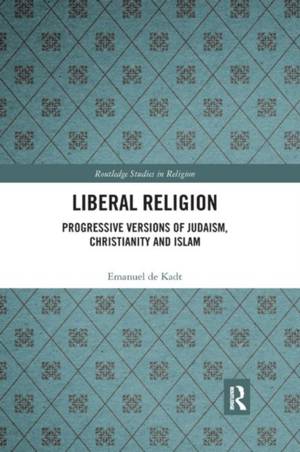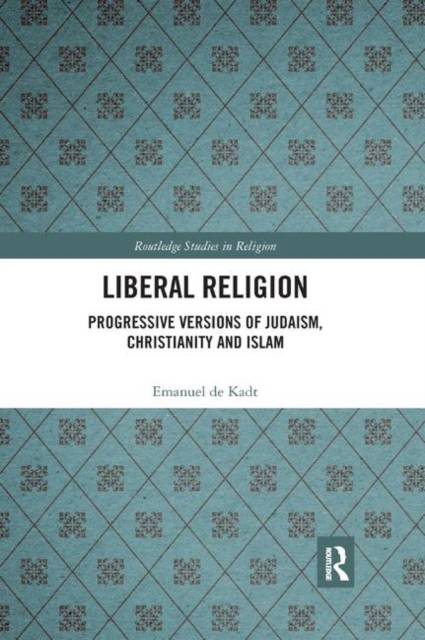
- Afhalen na 1 uur in een winkel met voorraad
- Gratis thuislevering in België vanaf € 30
- Ruim aanbod met 7 miljoen producten
- Afhalen na 1 uur in een winkel met voorraad
- Gratis thuislevering in België vanaf € 30
- Ruim aanbod met 7 miljoen producten
Omschrijving
In recent years, there has been an upsurge of interest in religion and religious issues. Some have linked this to a neo-liberal form of individualism, while others noted that secularism has left people bereft of a humanly necessary link with the transcendent. The importance of identity issues has also been remarked upon. This book examines how liberal forms of religion are allowing people to engage with religion on their own terms, while also feeling part of something more universal.
Looking at liberal approaches to the Abrahamic faiths - Judaism, Protestant and Roman Catholic Christianity and Islam - this book teases out how postmodern culture has shaped the way in which people engage with these religions. It also compares and contrasts how liberal thinking and theology have been expressed in each of the faiths examined, as well as the reactionary responses to its emergence.
By considering how liberalism has influenced the narrative around the Abrahamic faiths, this book demonstrates how malleable faith and spirituality can be. As such, it will be of interest to scholars working in Religious Studies, Theology, Sociology and Cultural Anthropology.
Specificaties
Betrokkenen
- Auteur(s):
- Uitgeverij:
Inhoud
- Aantal bladzijden:
- 144
- Taal:
- Engels
- Reeks:
Eigenschappen
- Productcode (EAN):
- 9780367892791
- Verschijningsdatum:
- 17/12/2019
- Uitvoering:
- Paperback
- Formaat:
- Trade paperback (VS)
- Afmetingen:
- 156 mm x 234 mm
- Gewicht:
- 226 g

Alleen bij Standaard Boekhandel
Beoordelingen
We publiceren alleen reviews die voldoen aan de voorwaarden voor reviews. Bekijk onze voorwaarden voor reviews.











